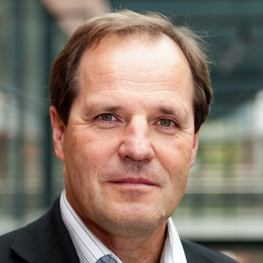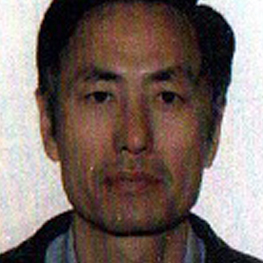Proceedings of the 2nd International Conference
on Theoretical and Applied Nanoscience and Nanotechnology (TANN'18)
June 10 - 12, 2018 | Niagara Falls, Canada
The keynote information for the 2nd International Conference of Theoretical and Applied Nanoscience and Nanotechnology (TANN'18) is as follows:

Dr. Yuning Li
University of Waterloo, Canada

Dr. Harri Lipsanen
Aalto University, Finland

Dr. Liqiu Wang
University of Hong Kong, Hong Kong

Dr. Gu Xu
McMaster University, Canada
TANN'18 Keynote Speakers

Dr. Yuning Li
University of Waterloo, Canada
Dr. Yuning Li is Professor in the Department of Chemical Engineering with affiliation to the Waterloo Institute for Nanotechnology (WIN) at University of Waterloo. He received his bachelor and master degrees in polymer materials from Dalian University of Technology in China in 1985 and 1988, respectively, and his Ph.D. in materials science from Japan Advanced Institute of Science and Technology (JAIST) in 1999. Prior to joining the University of Waterloo, he worked in the research labs at Simon Fraser University, the National Research Council Canada (NRC), Xerox Research Centre Canada (XRCC), and the Institute of Materials Research and Engineering (IMRE), the Agency for Science, Technology and Research (A*STAR) (Singapore). Since 1999, Dr. Li has been working on printed electronics including organic light emitting diodes, organic thin film transistors, and organic photovoltaics with an emphasis of his effort on the development of polymer semiconductors materials. He is a co-recipient of the 2nd Runner Up in Materials Category for "The Best and the Brightest New Technology for 2004" by Wall Street Journal and a co-recipient of the 3rd Annual NASA Nano 50™ Awards (2007) for Printed Organic Electronics. He has published ~140 refereed journal articles with an h-index of 43 and ~6900 citations (Scopus). He also holds 74 granted US patents, which have led to several commercialized products.
Topic of Keynote:
Design of Polymer Semiconductors with Readily Controlled Molecular and Nanoscale Structures for high performance printed organic electronics

Dr. Harri Lipsanen
Aalto University, Finland
Prof. Harri Lipsanen received his PhD from Helsinki University of Technology in 1994 and is currently a full professor in the Department of Electronics and Nanoengineering, Aalto University, Finland. Previously, he has served as Head of Optoelectronics Laboratory in Helsinki University of Technology and Head in the Department of Micro and Nanosciences in Aalto University. Currently Prof. Lipsanen studies nanomaterials and nanofabrication for various applications in photonics and nanoelectronics. His current research focus includes graphene and other 2D materials where he is a partner in EU’s large Graphene Flagship project. Another key topic is semiconductor nanowires based on III-V compound semiconductors and their heterostructures. His nanofabrication activities extend over many methods such as atomic layer deposition, metalorganic vapor phase epitaxy, electron beam lithography, self-assembly etc. He has 30 years of experience in these topics and more generally in materials science. Prof. Lipsanen has published about 300 peer-reviewed articles including 3 in the Nature Communications in 2016-17. He has close to 5000 citations to his papers (Google Scholar). Prof. Lipsanen is or has recently been in the Editorial Boards of Nano Energy Systems, Scientific Reports and Applied Sciences. In 2018, he is Nokia Visiting Professor and Visiting Professor in the University of Arizona.
Topic of Keynote:
Wonderful Properties of Compound Semiconductor Nanowires and their Arrays

Dr. Liqiu Wang
University of Hong Kong, Hong Kong
Prof. L. Q. Wang received his PhD from University of Alberta and is currently a full professor in the Department of Mechanical Engineering, the University of Hong Kong. He is also the Qianren Scholar (Zhejiang) and serves as the director and the chief scientist for the Laboratory for Nanofluids and Thermal Engineering, Zhejiang Institute of Research and Innovation (HKU-ZIRI), the University of Hong Kong. He has over 30 years of university experience in thermal & power engineering, energy & environment, transport phenomena, materials, nanotechnology, biotechnology, and applied mathematics in Canada, China/Hong Kong, Singapore and the USA, and 2 years of industrial experience as CTO & Chief Scientist in thermal engineering and technology management. Prof. Wang has secured over 70 projects funded by diverse funding agencies and industries including the Research Grants Council of Hong Kong, the National Science Foundation of China and the Ministry of Science and Technology of China, totaling > US$20m. Prof. Wang has published 10 books/monographs and over 360 book chapters and technical articles including 3 in the Nature Communications published in 2017, many of which have been widely used by researchers all over the world, and is ranked amongst the top 1% of most-cited scientists (ESI). He has also filed 22 patent applications.
Prof. Wang’s work has received recognition through a number of awards, including the most recent Innovation Award by the Optical Society presented during the 7th International Multidisciplinary Conference on Optofluidics 2017 (Singapore; 25th -28th July 2017). He was visiting professor of Harvard University (2008) and Duke University (2003). He has presented over 50 invited plenary/keynote lectures at international conferences, and serves/served as the editor-in-chief for the Advances in Transport Phenomena, the editor for the Scientific Reports, the associate editor for the Current Nanoscience, the guest editor for the Journal of Heat Transfer, the Nanoscale Research Letters and the Advances in Mechanical Engineering, and serves on the editorial boards of 20 international journals.
Topic of Keynote:
Small is Big: Magic Nanoliter Droplets

Dr. Gu Xu
McMaster University, Canada
Dr. Gu Xu obtained his Ph.D from Columbia University in 1989, and joined Materials Science and Engineering of McMaster University in 1991, where he became a Full Professor in 2002. His research covers Organic/Polymeric Materials and Devices and Nano-structure detection by X-rays.
Topic of Keynote:
Non-Patchy Strategy for Interatomic Distances from Extended X-ray Absorption Fine Structure